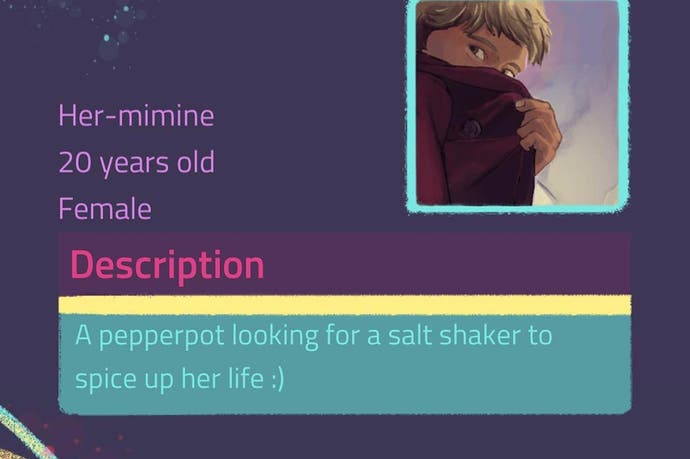The rise of the coming-of-age video game
A Normal Lost Phone takes us deep into the no man's land that lies between adolescence and adulthood.
You probably don't keep a diary in the way that Samuel Pepys or Anne Frank kept a diary: a written journal of days, scratched out in the woozy moments before sleep. But for anyone who owns a smartphone and uses it to tap out text messages, emails and diary reminders, a daily memoir of sorts accumulates in your pocket nonetheless. Most of us reveal different parts of ourselves to different people in our lives according to how much we trust, love, fear or doubt them. Eavesdrop on a single thread of texts to a specific acquaintance and you'll get a false sense of the person. But take all of their texts together and through this chorus of communications, a truer melody emerges. That we leave so much of ourselves in those tiny deposits of text is the first of the revelations in A Normal Lost Phone, Accidental Queen's exemplary game.
The premise is simple: someone else's smartphone, dropped or discarded, is now in your possession (the trailer indicates that you found it on the pavement by the side of a road). It's unlocked. You only need search the most recent communications to learn that the phone belongs (belonged?) to Samuel, who is celebrating his 18th birthday today. The but full answer to the question of who Sam is takes more time to unravel. Sam is loved by his anxious mother and overbearing father. He is close to his boisterous uncle, and friendly cousin. Sam is musical. Like most teenagers, Sam has many people in his life, but few with whom he is vulnerable.

This information comes slowly, as you pick through the ping-ponged conversations saved in Sam's message folder. It takes time to learn who is who in his circle, to cross reference the dates and times in different threads, and in doing so piece together why, for example, he fell out with so-and-so on such-and-such date. What is unexpected is quite how compelling all of this snooping proves to be, even when the story is told in such a disjointed, scattershot manner. Partly that's to do with the frisson of peeping. You are invading someone's privacy, gently at first, but then more forcefully as you begin to guess at passwords using clues in order to access the phone's deeper and more secure vaults. Playing the game feels morally dubious because, unlike say when you use a mobile phone in Grand Theft Auto or Final Fantasy XV, here there is no abstraction to your interactions. A Normal Lost Phone temporarily turns your mobile in Sam's mobile, and the swipes and taps are transgressive in their authenticity.
Sam is a young person teetering between the comfort of childhood and the great plains of adulthood. As such, A Normal Lost Phone slots into the growing catalogue of coming-of-age games, alongside Life Is Strange, Oxenfree, Broken Age and Gone Home. As more game-makers enter middle age, it makes sense they'd return to adolescence as a way to make sense of that period that we must all endure and survive. It's also a useful way in which to enable us to experience the lives of others in order to build, to deploy a bewilderingly contentious word in 2017, empathy. For any child in the midst of these struggles perhaps games like these bring comfort - a happy sense of not being alone. Or perhaps they just compound the sense of anguish, the frustration that we must go through these things at all, the fight to understand who we are, and where we fit.
Sensibly, A Normal Lost Phone is set across a two month time period, from 1st December 2015, when he sent a text to his entire address book letting them know his new number, to the present day, 31 January 2016, when you found the device. The tight timeframe makes the business of unpicking his story and circumstances manageable, but there are still gaps that are only filled in once you gain access to Sam's emails and, later, to the message folder on his dating app, Lovebirds (finding the relevant passwords is the only orthodox 'challenge' in the game). Like Her Story, A Normal Lost Phone's tale is told in fragments pieced together, not on the screen, but in the mind.
While browsing, you may listen to Sam's music in the background, which saturates the text with different tones and emotions. Even without these aural prompts, there's a melancholy to the story, something to do with the pain of adolescence, the struggle to break free from parental expectations, and, once free of them, the subsequent floundering for identity. His specific struggles may not be the same as those that you endured, or are enduring, or are yet to endure in your life. But in his confusion, in his trying on of different shades of identity, in his tacks between neediness and distance in relationships, there is heart-breaking commonality.

